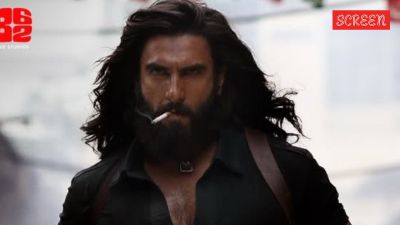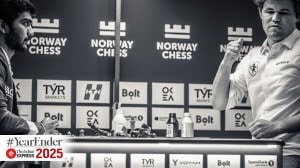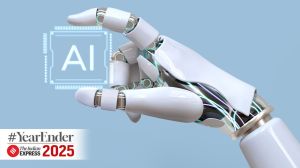Sarkozy146;s way
Nicholas Sarkozy has redefined the French presidency. But how deeply will his radical change of style and multiple reforms impact his country?

When in June last year Nicholas Sarkozy became the youngest president France ever had, he promised one thing above all: change, change and more change. He insisted that the country was stuck and depressed, that its energy had to be revived and unleashed. Eight months later, his supporters as well as his critics can8217;t but agree that indeed, change has taken place. Whether in style or in content, the 8216;hyperpresident8217;, as some call him, has redefined the French presidency, while working at reshaping the country and its relationship with the rest of the world.
It started on the day of his victory, with a flamboyant dinner at one of Paris8217;s posh restaurants and an escapade to the Mediterranean in a billionaire friend8217;s private jet 8212; and it never stopped since then. After decades of a presidency characterised by a distant and cautious, if not closed and secretive, style, Sarkozy has opened the presidential Elyseacute;e palace and infused an almost manic pace to the conduct of affairs. His energy and drive seem never-ending and his get-up-early, think-fast personality has lent a completely different feel to the presidency.
He jogs every day in the Elyseacute;e gardens, he often wears relaxed clothes, he does not hide his taste for luxury and rich friends and addresses almost everyone in the more casual form of the French language. Omnipresent in the media, he is 8212; in his own words 8212; the most talked about president ever. And of course, his way of making his private life so public has been one of the most visible changes of the presidency. He is the first divorceacute; ever to be elected and barely three months after his second divorce, Sarkozy was presenting his third wife. Some see it as reinventing the presidency in the era of star-systems, the Internet and soap operas. Other presidents also led unconventional lives, most were actually believed to have affairs, yet it was always wrapped in complete discretion and secrecy. Instead, Sarkozy proudly declared to have broken a tradition of lies and hypocrisy.
This change of style has also strongly impacted his governing approach. In a significant shift from his predecessors, he has largely overshadowed the prime minister, and surprised everyone with a successful policy of opening up to the opposition, by involving Left-wing personalities in the government.
Beyond stylistic transformations, Sarkozy has tried to reshape French internal as well as international policies. He launched a flurry of reforms from the first month of his presidency, slashing taxes, relaxing labour laws, launching a reform of universities and ambitious initiatives for the environment. He took controversial positions on religion emphasising the Christian roots of the country and the place of God in the heart of every man, something previously unthinkable in a country so proud of its secular nature.
On the international front he has been extremely active, visiting scores of countries. He played a central role in the adoption of a revised European constitutional treaty in Lisbon, which will allow for a much-needed and much-delayed reform of EU8217;s institutions. He has revitalised the relationship with the US, openly declaring himself a friend of America, yet remaining firm on his refusal to help in Iraq or agreeing to Turkey8217;s entry in the European Union. He has been pursuing the idea of an alliance with Mediterranean countries while playing a Zorro-type rescuer role in Libya, in Chad or in Colombia. Currently the most aggressive salesman for nuclear power, he has visited multiple Muslim states to sell French nuclear technology. Whether in Saudi Arabia, the UAE, Qatar, Libya, Egypt, Algeria or Morocco, his attempts to promote nuclear energy are fuelled by record-breaking energy prices, a strong concern over global warming and of course the desire to boost the French economy. In Abu Dhabi, he signed a deal to create a French military base which will make France the only western power other than the US with a permanent defence installation in the Gulf. But a dynamic or provocative style is not always enough to solve the most complex issues. He failed, for instance, to change Syria8217;s position in Lebanon and allow for a presidential election. A strong push and personal involvement cannot solve all problems.
Setbacks have also begun on the domestic front, with recent polls showing for the first time more unfavourable than favourable views of his presidency. It seems that difficult economic prospects and a fatigue factor with his splashy personal life have disappointed a part of the population. He had pledged to be the president of purchasing power yet has not convinced the public of being so. With blocked wages, high consumer goods8217; prices, increased inflation prospects, many had expected him to focus on improving the economy. Instead, by exposing his flamboyant personal life, he has given some the impression of spending too much time having fun. He has been further damaged by his former wife, Ceacute;cilia Ciganer, who described him in recent books as out of control, with behavioural problems that make him unsuited for the role of president.
Yet, it is way too early in the presidency to judge whether Nicholas Sarkozy8217;s radical change of style and multiple reforms will deeply impact the country, and revive it the way he had pledged. Obviously, changing the course of an economy takes more than a few months and in a globalised world, several factors which are not under his control are to be taken into account. Changing a whole country8217;s mentality could take even more time. The French are notoriously critical and prone to complaining about their situation, regularly appraising the state of their country as worse than it really is. Partly in order to deal with it, Sarkozy recently introduced the lofty idea of 8220;politics of civilisation8221;, to establish France as the 8220;soul of the new renaissance the world needs8221;. Would all of that be enough to cheer up the soul of the country? Only time will tell.
The writer is a French columnist nadinelasyahoo.com
- 01
- 02
- 03
- 04
- 05































